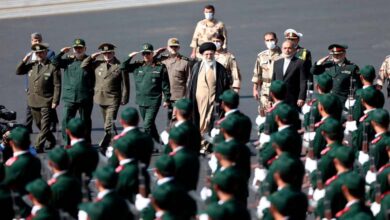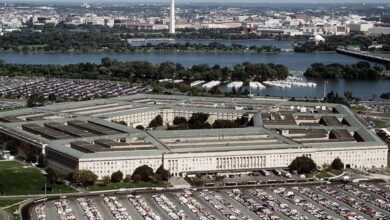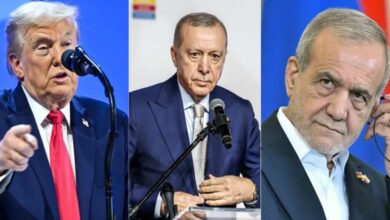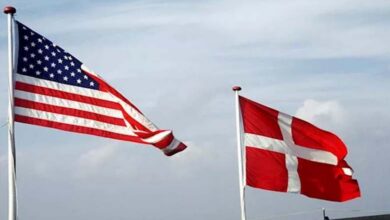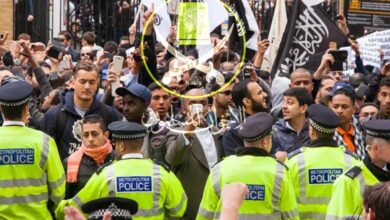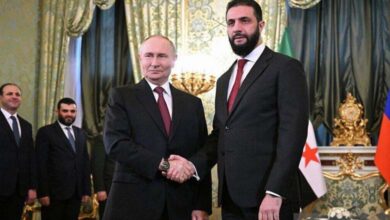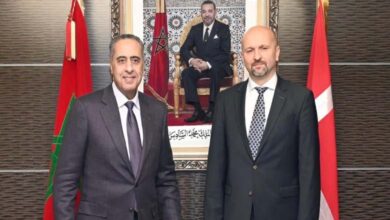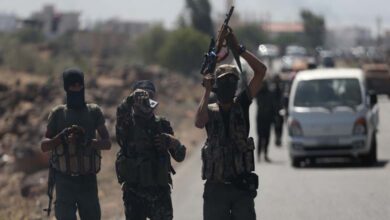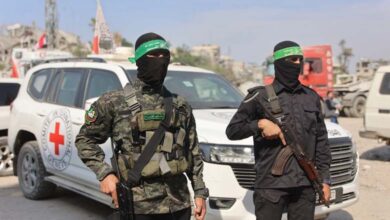Gaza Donation Theft… The behind-the-scenes tensions within Hamas
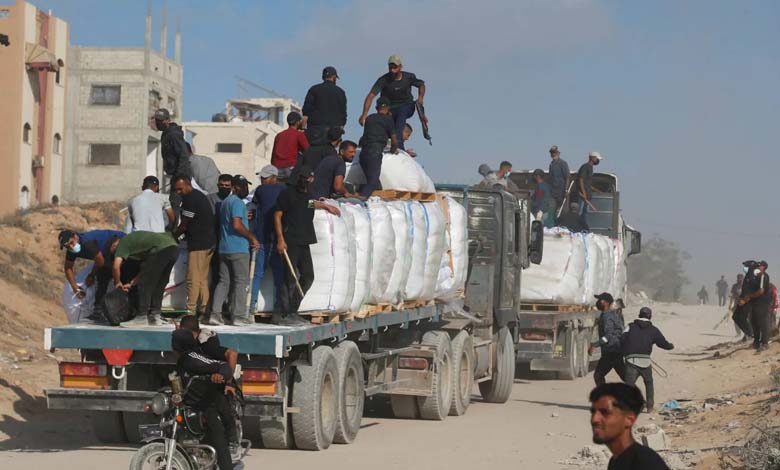
In January 2024, unofficial accounts close to the Palestinian Hamas movement published a statement titled “Lifting the Cover from Institutions and Individuals”. It warned against organizations that collect donations and funds under the pretext of sending them to Gaza, only to appropriate the money, which never reaches the besieged enclave.
-
Waqf al-Umma… A donation campaign for Gaza exposes a “Brotherhood scandal” involving the embezzlement of aid
-
Stabilization Force in Gaza… a U.S. proposal colliding with Security Council barriers
The leaked statement sparked widespread controversy because it claimed that donations were being stolen amid the Israeli war on Gaza. The uproar subsided for a time, only to resurface in recent days after leaders affiliated with the Muslim Brotherhood appeared in a promotional video for a fundraising conference for Gaza organized by the “Waqf Al-Ummah” foundation, one of the institutions flagged in the leaked statement nearly two years earlier.
The announcement of the Waqf Al-Ummah conference, launched under the slogan “Loyalty to Gaza”, revived the issue of embezzled donations collected in the name of Gaza. The unofficial Hamas statement resurfaced online, with claims that the movement and the Brotherhood leaders appearing in the video were participating in the misappropriation of aid. Yet this was only the tip of the iceberg.
-
Security Council to vote on Gaza resolution on this date
-
CIA Information on Israel’s Alleged Use of Gazans as Human Shields
The renewed focus on the issue is linked to internal disputes within Hamas between two factions: one led by Khaled Meshaal, head of the external bureau and former political bureau chief, and the other aligned with the Iranian axis, headed by Khalil Al-Hayya, chief negotiator and current head of the Gaza office.
Tensions escalated recently after the Hamas-Israel ceasefire agreement mediated by the United States, Egypt, Qatar and Turkey on October 9. Internal leaks highlighting the movement’s internal divisions then surfaced.
One indication of these tensions was a formal Hamas statement warning against social media accounts accused of spreading false information about the movement. Some of these accounts were known to be close to Khaled Meshaal.
-
Israel Reopens Zikim Crossing to Allow Humanitarian Aid into Gaza
-
The International Force in Gaza: Cautious Concessions Open a Window for Consensus
Waqf Al-Ummah and the International Muslim Brotherhood Organization
A key development in the recent debate was the appearance of Muslim Brotherhood figures—an organization listed as terrorist in several countries—in the foundation’s
promotional material. Posts circulating on social media claimed that the foundation had stolen nearly half a billion dollars in donations. Names included Ali Al-Qaradaghi, president of the International Union of Muslim Scholars, his deputy Mohamed Al-Dado, the secretary-general Ali Al-Sallabi, Jamal Abdel Sattar, and others—under the supervision of the foundation’s director, Ahmad Al-Omari, who was also named in the leaked warning.
-
Turkey seeks to secure safe passage for dozens of fighters trapped in a tunnel in Gaza
-
During the recovery of a hostage’s remains in Gaza, Hamas admits to deceiving Israel
According to an informed source, the three institutions mentioned in the January 2024 statement—Waqf Al-Ummah, Minbar Al-Aqsa, and “We Are All Maryam”—are affiliated with the international Muslim Brotherhood organization, which intervened in the crisis sparked by the leaked statement two years ago.
The source added that debates erupted within Hamas over publishing the warning. Khaled Meshaal rejected the idea, leading the opposing faction to leak the document to digital activists, including the X account of Khaled Mansour, which published and amplified it within the context of internal organizational conflict.
-
The coexistence of opposites in Gaza: life pulsing among the dead
-
Ruling Gaza Until 2027: Details of the U.S. Draft Resolution at the UN Security Council
There is a direct relationship between Khaled Meshaal and Ahmad Al-Omari. Moreover, Ahmad Al-Sayyid, Meshaal’s son-in-law, works in the foundation as a marketing director.
According to a second Hamas-affiliated source, embezzlement of funds intended for Gaza and the Palestinian territories did occur. Complaints had been submitted to the Hamas financial committee more than two years before the 7 October 2023 attack, and the issue reached Ismail Haniyeh, then head of the political bureau, who had promised to look into it.
-
Hamas Fighters Inside the Yellow Line: A New Test for the Gaza Ceasefire
-
Unexploded ordnance: a silent terror haunts Gaza after the war
After the irregularities were detected, negotiations began between the leaders of the three organizations and the Hamas leadership, including Haniyeh, to recover the stolen funds. Haniyeh requested the settlement of disputes once the funds were returned, but disagreements deepened and the money was never restored.
The total amount embezzled is estimated to be around 300 million dollars, though the figure cannot be independently verified.
-
Secret U.S. Report: Hundreds of Israeli Violations in Gaza Under Investigation
-
Safe Corridor… Details of a New US Offer to Hamas in Gaza
After reaching a dead end, Hamas’s leadership under Haniyeh decided to leak the case on social media. The statement “Lifting the Cover from Institutions and Individuals” was then published. It listed the three organizations and several individuals: Said Abu Al-Abd (nom de guerre of Yazid Noufal), Fouad Al-Zubaidi, Samir Said, Khaldoun Hijazi, Zaid Al-Ays, and Ahmad Al-Omari.
Waqf Al-Ummah responded in January 2024, asserting that it was a fully Turkish institution and threatening legal action against anyone accusing it of theft.
-
Israeli raids on Gaza: the heaviest loss of life in a single night since the ceasefire
-
After the Truce… a Silent Enemy Threatens Gaza
During the same period, the foundation subjected Yazid Noufal, Samir Said and Fouad Al-Zubaidi to an internal, undisclosed investigation. Financial and administrative violations were confirmed, and the foundation demanded the return of the stolen funds. Some had purchased properties and land, but the funds were never returned and the foundation concealed the violations.
Some of those involved traveled to European countries, obtained residency permits, and provided European security agencies with information about Hamas-linked financing networks—information that has not been publicly disclosed.
-
New Gaza between American Opportunity and Palestinian Fears
-
Harsh living and the specter of war: Gaza’s exhausted residents still suffering
Later, Fouad Al-Zubaidi, one of the individuals accused, established a new fundraising entity under the guidance of Ahmad Al-Omari, to serve as a potential replacement for Waqf Al-Ummah if the controversy compromised its operations.
Meanwhile, the international Muslim Brotherhood organization recently discussed the Waqf Al-Ummah affair after the widespread backlash prompted by the appearance of its leaders in the conference video. The organization decided to contain the crisis and avoid confrontation until the situation calms.
It also resolved to limit the publication of official communications regarding donation-related theft to its own media platforms, hoping the current crisis will pass as it did in 2024.


